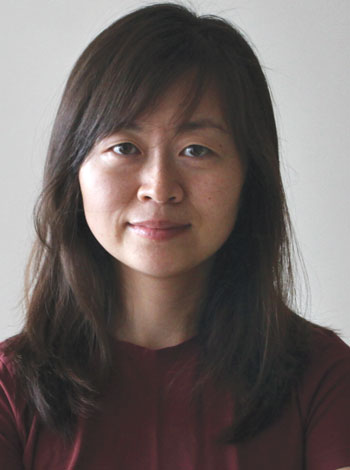Yanchao Bi
 Beijing Normal University, China
Beijing Normal University, China
http://psychbrain.bnu.edu.cn/home/yanchaobi
What does your research focus on?
My current research focuses on the functional and neural architecture of concepts — the meaning of words, pictures, and sounds.
What drew you to this line of research? Why is it exciting to you?
My earlier work was on the psychological mechanisms of language processing. I was always interested in the meaning of words, which goes beyond language and represents the interface between language and a whole range of other cognitive domains. We have encountered patients with very interesting patterns of conceptual deficits; for example, some people had lost the conceptual knowledge of fruits and vegetables yet had a good understanding of tools. These are intriguing phenomena and I was curious about their underlying mechanisms. I am particularly excited by these questions because they are the border of several classical, yet relatively independent, fields of research — language, vision (object recognition), memory, etc.
Who were/are your mentors or psychological influences?
I have had many fantastic mentors, and being in science, I am constantly influenced by great minds of all eras. My PhD advisor, Alfonso Caramazza at Harvard University, was a most wonderful mentor. Not only did he train me on how to think as a scientist, but he also showed me how to build a team with an open, sharp, and active atmosphere. I had great peers in graduate school and now I have a wonderful group of students in my own lab. Discussions with them are a particularly delightful part of my work.
To what do you attribute your success in the science?
I actually don’t think I am successful yet, but I am working hard to be more active and persistent, to keep an open yet critical mind, and to be better at time management.
What’s your future research agenda?
I am working with my most wonderful collaborator, Zaizhu Han, and a terrific team of students. We are studying the effects of conceptual categories on various brain modalities (e.g., visual, motor, auditory) using a combination of brain measures in several different populations (patients with brain injuries, healthy college students, and blind individuals). We expect to gain a better understanding of how the human brain organizes conceptual knowledge, but in reality, I think we will be led by what we uncover from the incoming data.
Any advice for even younger psychological scientists? What would you tell someone just now entering graduate school or getting their PhD?
Don’t panic.
Now seriously, if you are anxious about procrastinating or getting “bad” data or feeling lost, don’t panic. You are not alone. Things will get better.
What publication you are most proud of or feel has been most important to your career?
I am happy with several recent papers that we are working on — stay tuned. For published work, I would say this one:
Han, Z., Zhang, Y., Shu, H., & Bi, Y. (2007). The Orthographic Buffer in Writing Chinese Characters: Evidence from a Dysgraphic Patient. Cognitive Neuropsychology, 24 (4), 431–450.
It was one of the first case studies that my collaborator Zaizhu Han and I did. The work focused on a little-studied topic – the cognitive mechanisms of writing Chinese characters. The research was difficult from both a theoretical and experimental perspective but we had a lot of fun doing it and learned a lot about working with patients.





APS regularly opens certain online articles for discussion on our website. Effective February 2021, you must be a logged-in APS member to post comments. By posting a comment, you agree to our Community Guidelines and the display of your profile information, including your name and affiliation. Any opinions, findings, conclusions, or recommendations present in article comments are those of the writers and do not necessarily reflect the views of APS or the article’s author. For more information, please see our Community Guidelines.
Please login with your APS account to comment.